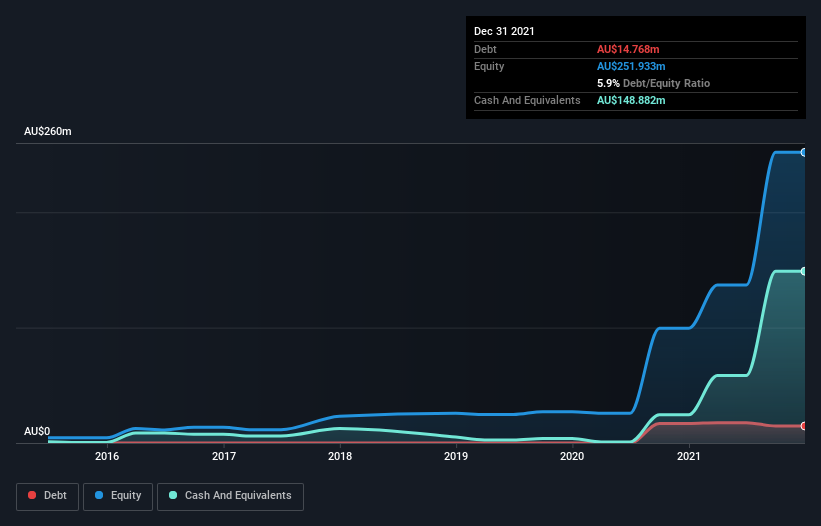Is Firefinch (ASX:FFX) Weighed On By Its Debt Load?
Warren Buffett famously said, 'Volatility is far from synonymous with risk.' So it might be obvious that you need to consider debt, when you think about how risky any given stock is, because too much debt can sink a company. Importantly, Firefinch Limited (ASX:FFX) does carry debt. But the real question is whether this debt is making the company risky.
When Is Debt A Problem?
Debt is a tool to help businesses grow, but if a business is incapable of paying off its lenders, then it exists at their mercy. Part and parcel of capitalism is the process of 'creative destruction' where failed businesses are mercilessly liquidated by their bankers. However, a more usual (but still expensive) situation is where a company must dilute shareholders at a cheap share price simply to get debt under control. Of course, debt can be an important tool in businesses, particularly capital heavy businesses. When we think about a company's use of debt, we first look at cash and debt together.
View our latest analysis for Firefinch
What Is Firefinch's Net Debt?
The image below, which you can click on for greater detail, shows that Firefinch had debt of AU$14.8m at the end of December 2021, a reduction from AU$16.9m over a year. However, it does have AU$148.9m in cash offsetting this, leading to net cash of AU$134.1m.
How Healthy Is Firefinch's Balance Sheet?
The latest balance sheet data shows that Firefinch had liabilities of AU$73.4m due within a year, and liabilities of AU$23.9m falling due after that. On the other hand, it had cash of AU$148.9m and AU$7.18m worth of receivables due within a year. So it actually has AU$58.8m more liquid assets than total liabilities.
This short term liquidity is a sign that Firefinch could probably pay off its debt with ease, as its balance sheet is far from stretched. Succinctly put, Firefinch boasts net cash, so it's fair to say it does not have a heavy debt load! When analysing debt levels, the balance sheet is the obvious place to start. But ultimately the future profitability of the business will decide if Firefinch can strengthen its balance sheet over time. So if you're focused on the future you can check out this free report showing analyst profit forecasts.
In the last year Firefinch wasn't profitable at an EBIT level, but managed to grow its revenue by 436%, to AU$109m. When it comes to revenue growth, that's like nailing the game winning 3-pointer!
So How Risky Is Firefinch?
By their very nature companies that are losing money are more risky than those with a long history of profitability. And we do note that Firefinch had an earnings before interest and tax (EBIT) loss, over the last year. And over the same period it saw negative free cash outflow of AU$68m and booked a AU$42m accounting loss. With only AU$134.1m on the balance sheet, it would appear that its going to need to raise capital again soon. The good news for shareholders is that Firefinch has dazzling revenue growth, so there's a very good chance it can boost its free cash flow in the years to come. High growth pre-profit companies may well be risky, but they can also offer great rewards. The balance sheet is clearly the area to focus on when you are analysing debt. But ultimately, every company can contain risks that exist outside of the balance sheet. Case in point: We've spotted 2 warning signs for Firefinch you should be aware of, and 1 of them is a bit unpleasant.
When all is said and done, sometimes its easier to focus on companies that don't even need debt. Readers can access a list of growth stocks with zero net debt 100% free, right now.
Have feedback on this article? Concerned about the content? Get in touch with us directly. Alternatively, email editorial-team (at) simplywallst.com.
This article by Simply Wall St is general in nature. We provide commentary based on historical data and analyst forecasts only using an unbiased methodology and our articles are not intended to be financial advice. It does not constitute a recommendation to buy or sell any stock, and does not take account of your objectives, or your financial situation. We aim to bring you long-term focused analysis driven by fundamental data. Note that our analysis may not factor in the latest price-sensitive company announcements or qualitative material. Simply Wall St has no position in any stocks mentioned.

